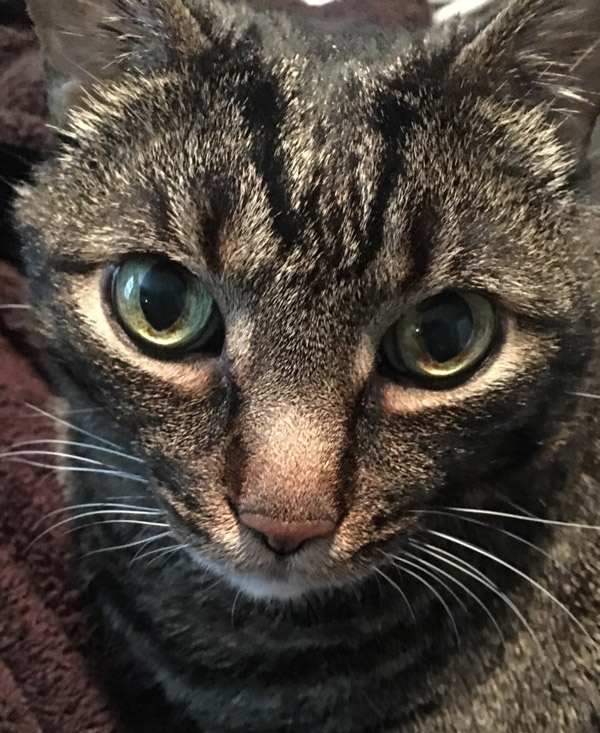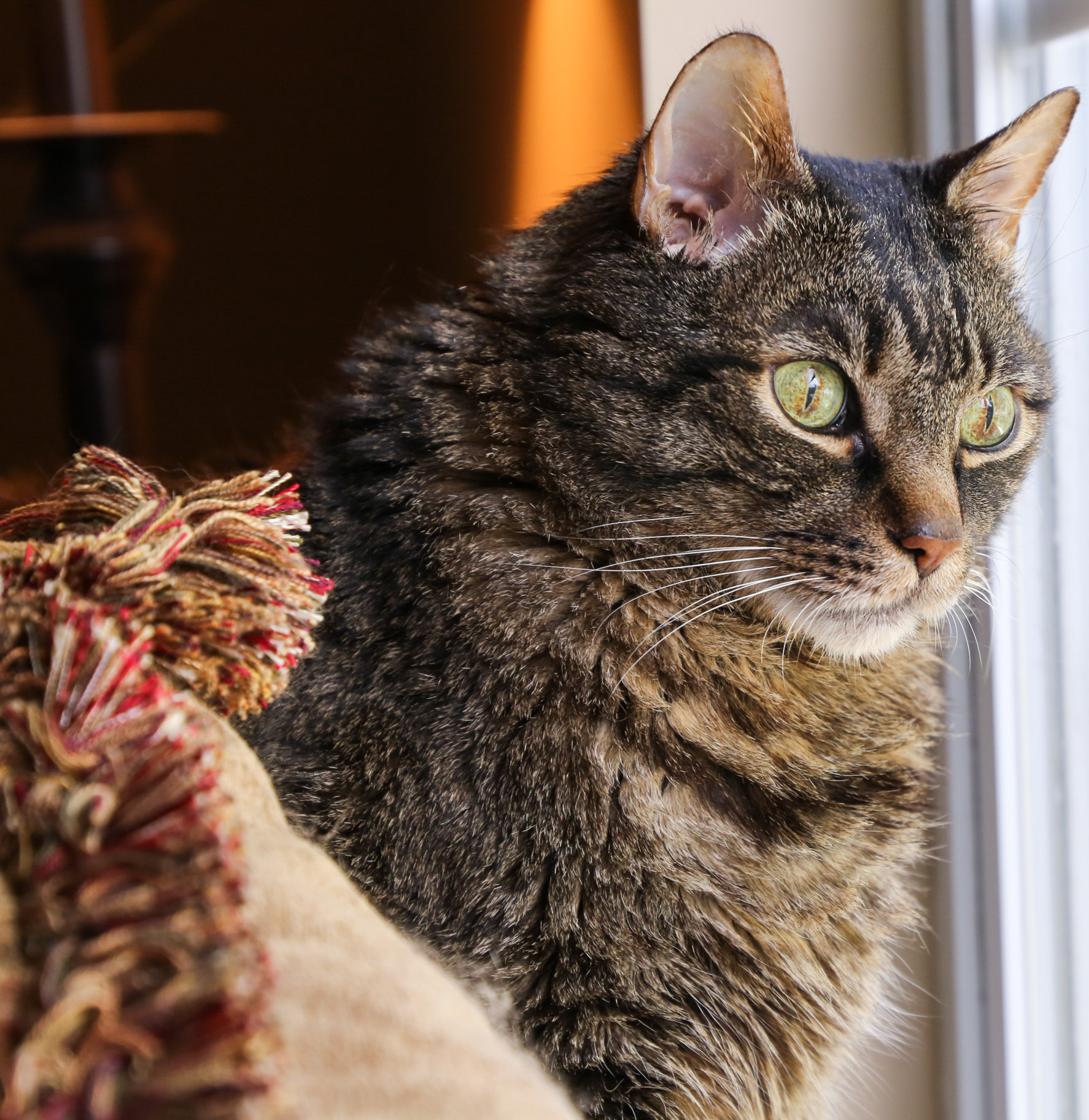
If you have been following Cooper’s story, you may have noticed he has a colorful health history. Cooper had no major health issues for the first seven years of his life, and by all accounts, he had no signs of illness. That changed when he developed Feline Lower Urinary Tract Disease (FLUTD) caused by bladder stones. This is Cooper’s Feline Lower Urinary Tract Disease Story.
Before I move forward, I want to emphasize that I am not an expert or professional in veterinary medicine. Cooper’s FLUTD Story is not meant to replace your veterinarian’s medical advice and treatment plans.
Feline Lower Urinary Tract Disease is not uncommon in cats and can have several causes. In Cooper’s case, he had Urolithiasis (Urinary Stones). This is especially dangerous in male cats due to their anatomy. For many cats, urinary stones can be managed through a prescription diet and regular monitoring with their veterinarian. But for some cats, more aggressive measures are required to manage the stones.
I remember vividly how it was a quiet Saturday morning around 8:00am. I was sorting laundry in the master closet and heard Cooper meowing in pain! I had never heard Cooper meow in such a way, but when I heard him, I knew he was in trouble. I came running to Cooper, and he was on the floor licking his belly. I saw blood on the floor near his litter box and drops of blood from where he had walked. Cooper was hurting and bleeding, and I had no idea why. I called the vet he went to near our house. They were open on Saturdays from 8:00am to 12:00pm. I had a short window to get him there, but when I called they would not see him. They stated that they were double booked that day. I was completely shocked. What am I supposed to do? I had no choice but to call a veterinary clinic that had been operating for years in our area. They had an excellent reputation. I had never taken Cooper there before because we always went to the vet closest to our house. I called this vet, and I explained what was happening. They had never seen Cooper before, but they told me this is an emergency and to bring him in ASAP! I drove Cooper there, and they immediately took Cooper back to examine him.
As the doctor had suspected, Cooper had bladder stones that developed into a urethral blockage. He was not able to pass urine, and it would be dangerous and even fatal if the blockage was not removed quickly. They would need to sedate Cooper in order to remove the large blockage. They would continue treatment on Cooper for the rest of the day and overnight. The house was quiet and lonely while Cooper stayed overnight at the vet. I received a call early the next morning from another doctor overseeing Cooper that day. She informed me that Cooper was doing well, and he could go home later that day. However, he would need to start immediately on a new diet. It was a prescription diet to help manage the urinary stones. Sunday evening I picked Cooper up along with his brand new prescription food. Cooper was happy to be home, and he actually loved his new food!
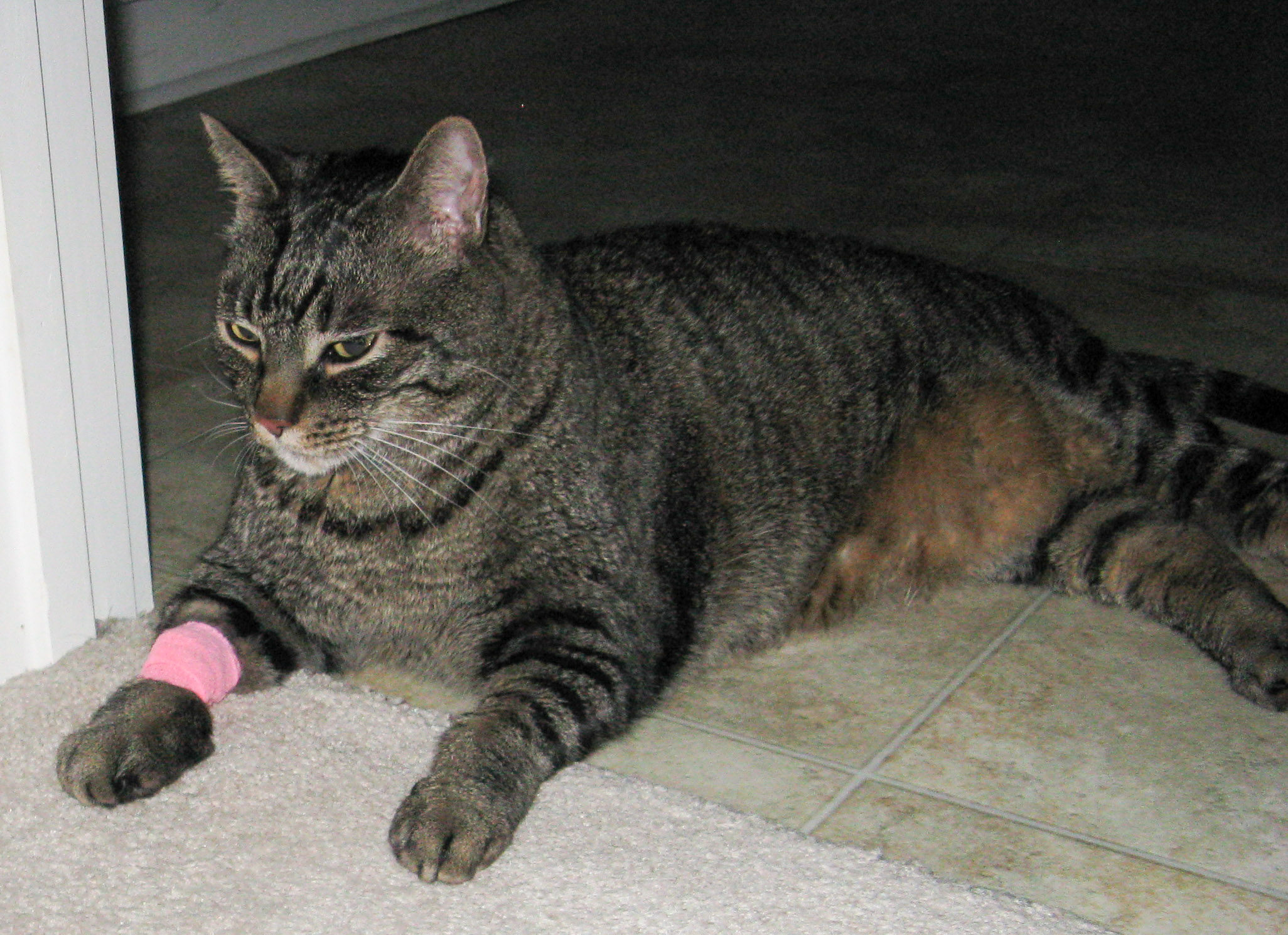
So, we were set. Cooper was well, and he was eating the food to help manage the bladder stones. That was until two weeks later on an early Sunday morning around 1:00 am when Cooper woke us up crying in pain and bleeding from behind. Fortunately, Cooper’s new vet had an emergency line. I called, and the vet on duty instructed me that Cooper needed to go to the emergency clinic immediately. He most likely had another urethral blockage that could not wait. So, off to the emergency clinic we went. They confirmed that Cooper had another severe urethral obstruction. Once again, Cooper was sedated, and the doctor at the emergency clinic immediately removed the blockage. Cooper had t0 stay for the rest of the night at the emergency clinic while they continued fluid therapy. The next morning, I picked Cooper up to take him to his vet. They took us back immediately, and his doctor informed me that since Cooper has had two severe urethral obstructions within a short amount of time, he would most likely need a surgery called Perineal Urethrostomy. The prescription food alone was not going to manage the urinary stones. If Cooper did not have the surgery, he would have more obstructions and his urethra would become irreparably damaged. There was really no choice but to schedule Cooper for surgery immediately, and his new vet had a doctor that specialized in this type of surgery. We agreed to the surgery without hesitation.
A few days later, surgery day had arrived. I was nervous, but I knew this was the only option we had to give Cooper quality of life. The Perineal Urethrostomy would not be performed on Cooper until the end of the day, so it was a long day. The doctor called me around 7:00 pm that evening. He informed me that Cooper did well, and the surgery was a success. I could come visit him, but he would need to stay at the vet in recovery for a few days. A Perineal Urethrostomy is not just a snip, snip, and good to go type procedure. Once Cooper was released to go home, we were given special instructions by the vet while Cooper recovered at home. One of the requirements was for Cooper to wear the cone of shame for 2 weeks.
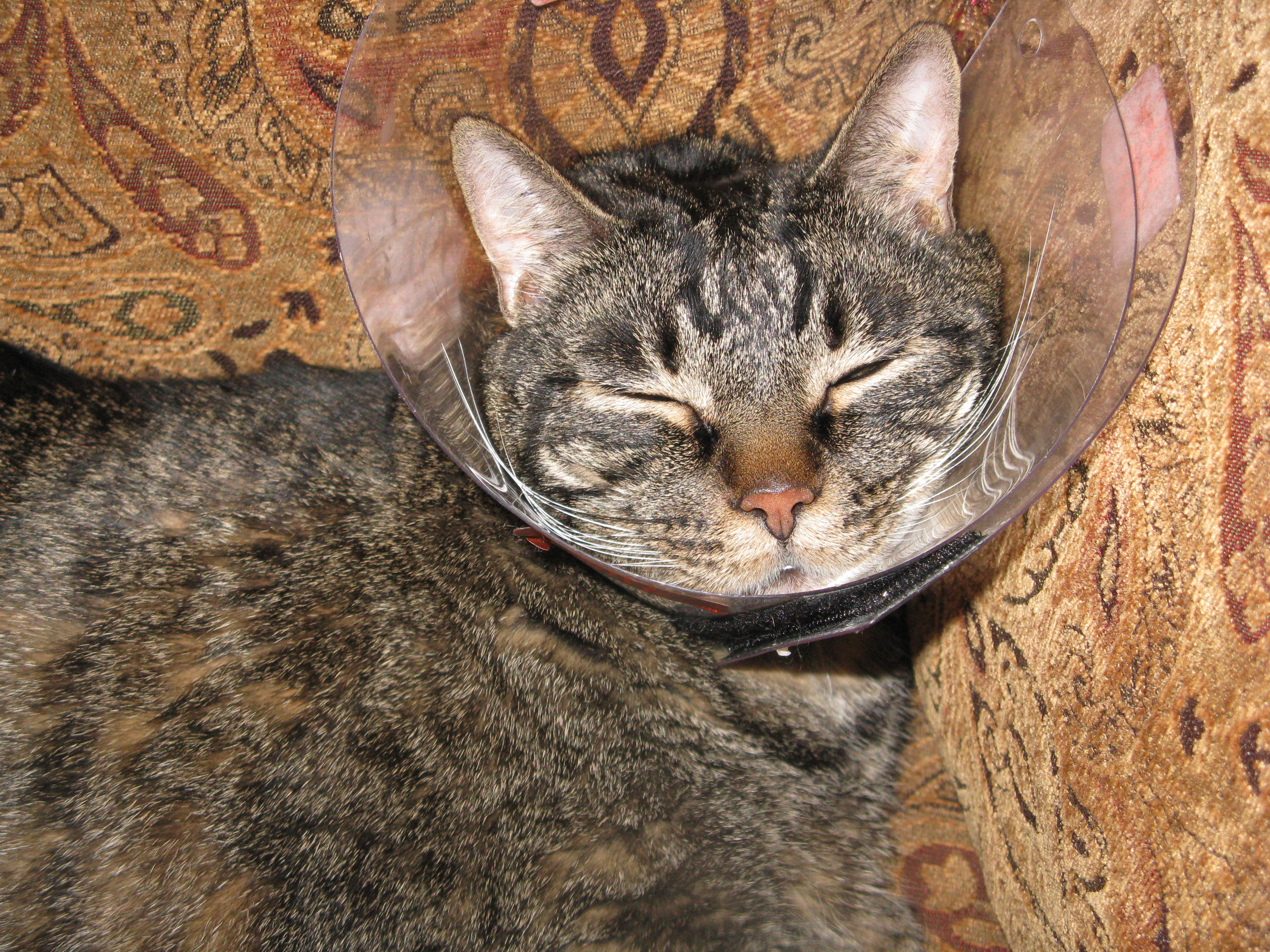
A Perineal Urethrostomy does not prevent urinary stones, but it would prevent Cooper from having urethral obstructions in the future. There are some risks that come with the surgery, such as a higher risk of UTIs. However, the pros outweighed the cons.
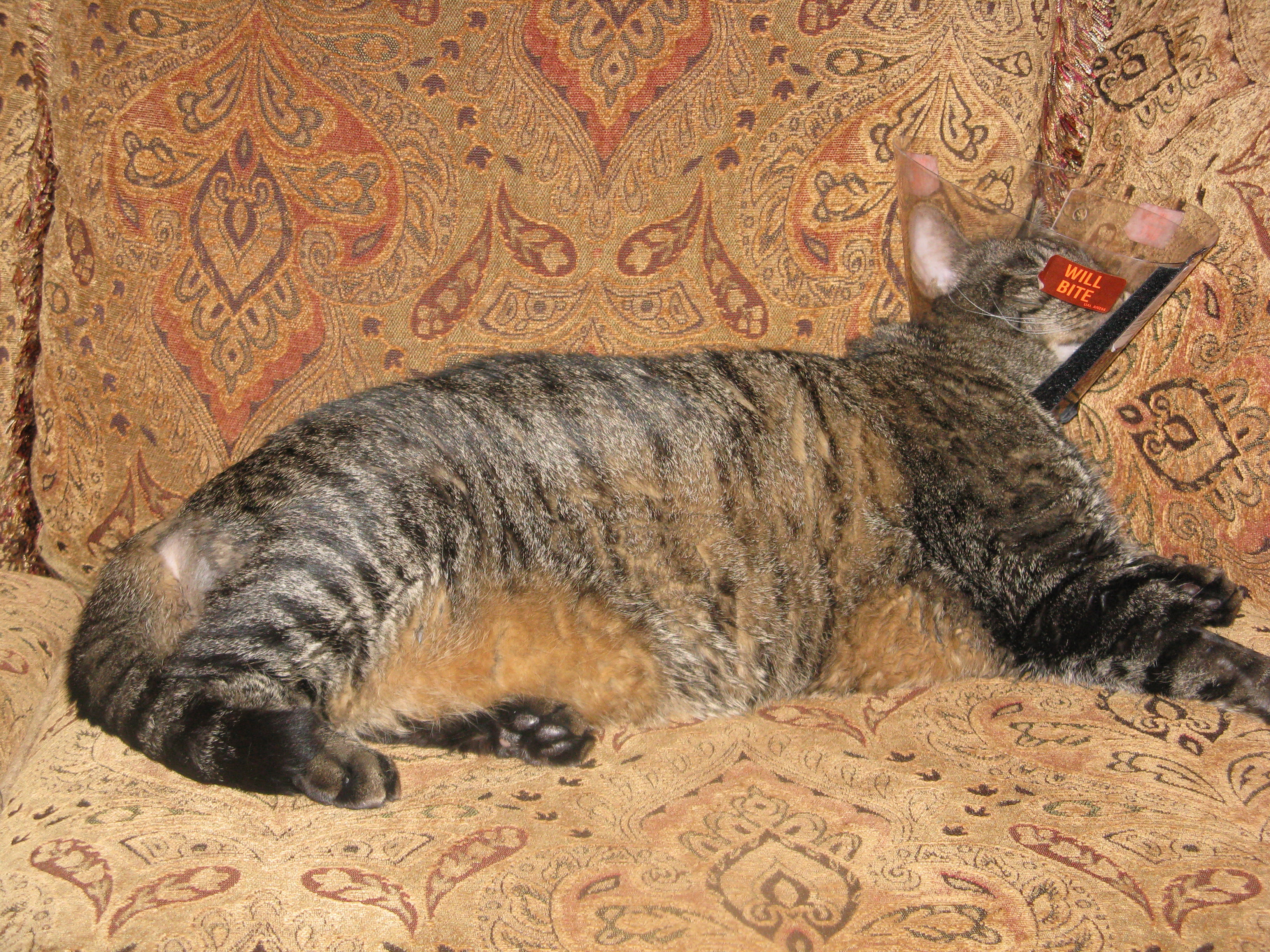
Not only did Cooper get a new vet when he developed FLUTD, he also received a new nickname from the vet techs. Cooper was called “Little Monster”. Hence, the “will bite” stickers on his cone. Cooper has never been a compliant kitty at any vet, but with the extreme pain he was in, he was a vicious little monster. However, “Little Monster” was all in tongue-in-cheek, for Cooper received the best care during his diagnosis, treatments, surgery, recovery, check-ups, and so on.
Cooper made a full recovery from the Perineal Urethrostomy without any complications. He continues his prescription diet to reduce urinary stones, but he has never suffered an urethral obstruction since the surgery. He has had the occasional UTI, but we managed those with veterinary treatment.
We never went back to that vet near out house that said they were too busy to treat Cooper. The extra miles and time to his current vet, Riverview Animal Clinic, are worth everything for the well-being of Cooper! The doctors and vet techs have treated Cooper with dignity and urgency. They have treated Cooper for FLUTD, hyperthyroidism, exploratory surgery to remove a pre-cancerous tumor from his pancreas, pancreatitis, epilepsy, hypertension, and currently kidney disease! Without their care and expertise, I can say with certainty that Cooper would not be here with me today!
Thank you Cooper, our “Little Monster”, for being our precious sweet boy!
